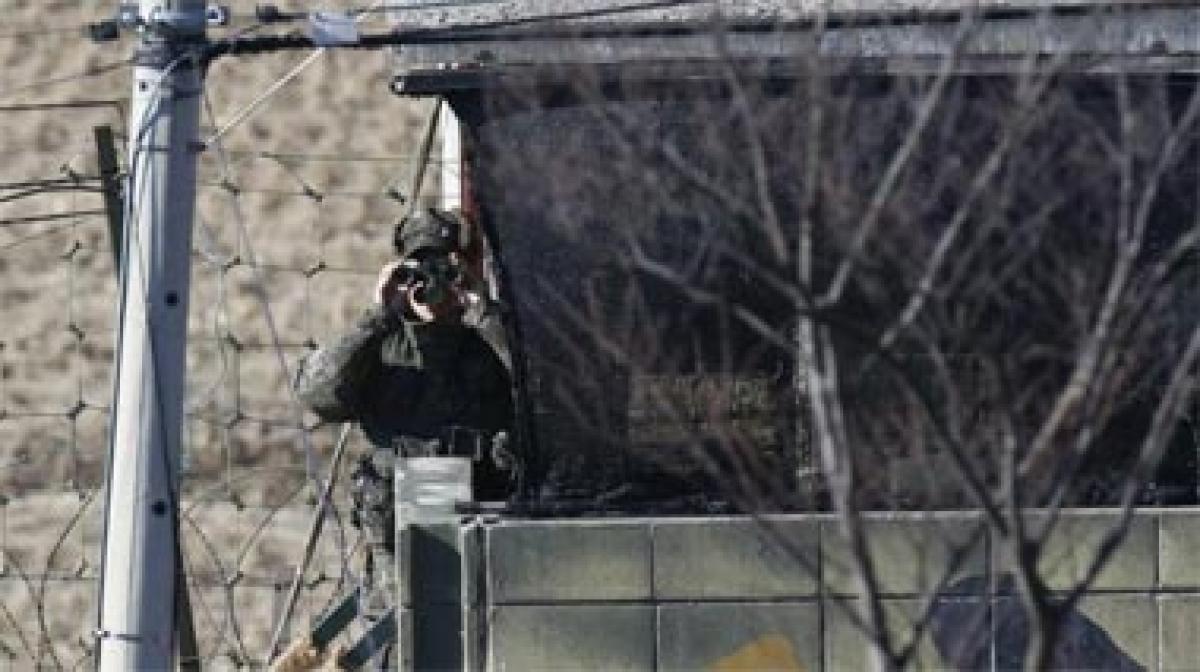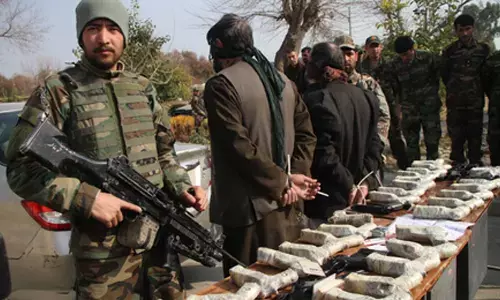Pressure on China to rein in North Korea

South Korea has unleashed an ear-splitting propaganda barrage across its border with North Korea in retaliation for its nuclear test, while the United States called on China to end \"business as usual\" with its ally.
Seoul/Beijing : South Korea has unleashed an ear-splitting propaganda barrage across its border with North Korea in retaliation for its nuclear test, while the United States called on China to end "business as usual" with its ally.
The broadcasts, in rolling bursts from walls of loudspeakers at 11 locations along the heavily militarised border, blared rhetoric critical of the Pyongyang regime as well as "K-pop" music. North Korea later responded with its own broadcasts.
The nuclear test by North Korea with Hydrogen Bomb angered both the United States and China, which was not given prior notice, although the US government and weapons experts doubt Pyongyang's.
China is North Korea's main economic and diplomatic backer, although relations between the Cold War allies have cooled in recent years. China's Foreign Ministry urged North Korea to stick to its denuclearisation pledges and avoid action that would make the situation worse, but also said China did not hold the key to resolving the North Korean nuclear issue.
"Achieving denuclearisation of the Korean Peninsula and safeguarding the peninsula's peace and stability accords with all parties' mutual interests, is the responsibility of all parties, and requires all parties to put forth efforts," ministry spokeswoman Hua Chunying told a news briefing.
The North agreed to end its nuclear programme in international negotiations in 2005 but later walked away from the deal. US Secretary of State John Kerry said that he had told Chinese Foreign Minister Wang Yi that China's approach to North Korea had not succeeded.
"China had a particular approach that it wanted to make, that we agreed and respected to give them space to implement that," Kerry told reporters after the phone call. "Today, in my conversation with the Chinese, I made it very clear that has not worked and we cannot continue business as usual."
In a call with his South Korean counterpart, Yun Byung-se, Wang said talks on the issue should be resumed as soon as possible, China's Foreign Ministry said. South Korea's nuclear safety agency said it had found a minuscule amount of xenon gas in a sample from off its east coast but said more analysis and samples were needed to determine if it came from a nuclear test.
The head of the Comprehensive Nuclear-Test-Ban Treaty Organisation (CTBTO), which uses monitoring stations around the world to detect atomic tests, said only "normal" levels of xenon had been detected, at a site in Japan.
"Xenon readings at 1st station downwind of #DPRK test site RN38 Takasaki #Japan at normal concentrations. Sampling continues," the CTBTO's executive secretary, Lassina Zerbo, said on Twitter. The presence of xenon would not indicate whether the blast was from a hydrogen device or a simpler fission explosion.
Seismic waves created by the blast were almost identical to those generated in North Korea's last nuclear test in 2013, Jeffrey Park, a seismologist at Yale University, wrote in a post on the Bulletin of the Atomic Scientists website, adding to scepticism about the hydrogen bomb claim.
As North Korea boosted troop deployments in front-line units, the South vowed to retaliate against any attack on its equipment, raised its military readiness to the highest level near the loudspeakers, cancelled tours of the Demilitarised Zone on the border, and also raised its cyberattack alert level.
The United States and South Korea are limited in their military options. Washington sent a pair of nuclear-capable B-2 stealth bombers over South Korea in a show of force after North Korea last tested a nuclear device in 2013.
North Korea responded then by threatening a nuclear strike on the United States. A South Korean military official said Seoul and Washington had discussed the deployment of US strategic weapons on the Korean peninsula, but declined to give details. Media said the assets could include B-2 and B-52 bombers, and a nuclear-powered submarine.














